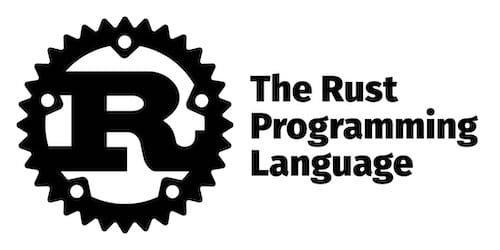How To Install Rust on Ubuntu 22.04 LTS

In this tutorial, we will show you how to install Rust on Ubuntu 22.04 LTS. For those of you who didn’t know, Rust is an open-source systems programming language that focuses on speed, memory safety, and parallelism. It is considered a modern equivalent of the C/C++ programming languages due to its performance and low-level control of hardware and memory.
This article assumes you have at least basic knowledge of Linux, know how to use the shell, and most importantly, you host your site on your own VPS. The installation is quite simple and assumes you are running in the root account, if not you may need to add ‘sudo‘ to the commands to get root privileges. I will show you the step-by-step installation of the Rust programming language on Ubuntu 22.04 (Jammy Jellyfish). You can follow the same instructions for Ubuntu 22.04 and any other Debian-based distribution like Linux Mint, Elementary OS, Pop!_OS, and more as well.
Prerequisites
- A server running one of the following operating systems: Ubuntu 22.04, 20.04, and any other Debian-based distribution like Linux Mint.
- It’s recommended that you use a fresh OS install to prevent any potential issues.
- SSH access to the server (or just open Terminal if you’re on a desktop).
- A
non-root sudo useror access to theroot user. We recommend acting as anon-root sudo user, however, as you can harm your system if you’re not careful when acting as the root.
Install Rust on Ubuntu 22.04 LTS Jammy Jellyfish
Step 1. First, make sure that all your system packages are up-to-date by running the following apt commands in the terminal.
sudo apt update sudo apt upgrade sudo apt install apt-transport-https gnupg2 curl build-essential gcc make
Step 2. Installing Rust Programming Language on Ubuntu 22.04.
By default, Rust is not available on Ubuntu 22.04 base repository. Now run the following command below to download the Rust installation script to your Ubuntu system:
curl --proto '=https' --tlsv1.2 -sSf https://sh.rustup.rs | sh
You will get the following output. Type 1 and press enter to continue your installation:
Current installation options: default host triple: x86_64-unknown-linux-gnu default toolchain: stable (default) profile: default modify PATH variable: yes 1) Proceed with installation (default) 2) Customize installation 3) Cancel installation >1
Once completed, you will see the following outcome:
Rust is installed now. Great! To get started you may need to restart your current shell. This would reload your PATH environment variable to include Cargo's bin directory ($HOME/.cargo/bin). To configure your current shell, run: source $HOME/.cargo/env
Next, we activate the Rust environment for your current shell with the following commands below:
source ~/.profile source ~/.cargo/env
Confirm the installation and check the installed build version of Rust:
rustc -V
Step 3. Create Example Rust Project.
First, create a folder that will serve as Workspace, in it create another folder where the file in question will be:
mkdir ~/projects cd ~/projects mkdir hello_world cd hello_world
Now, create the file:
sudo nano hello_world.rs
Paste the following code inside the new file:
fn main() {
println!("Hello, Meilana!");
}
Now compile and run the program:
rustc hello_world.rs ./hello_world
You will see the output of your Rust code:
Hello, Meilana!
Congratulations! You have successfully installed Rust. Thanks for using this tutorial for installing Rust programming language on Ubuntu 22.04 LTS Jammy Jellyfish system. For additional help or useful information, we recommend you check the official Rust website.